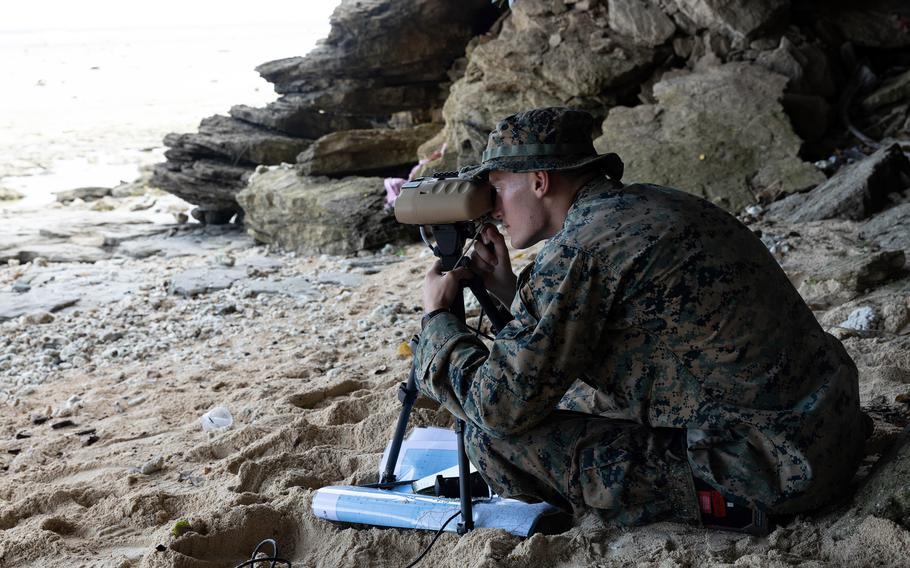
Cpl. Hunter Way, a fire support Marine with Marine Rotational Force-Southeast Asia, watches for vessels while training in Sorsogon, Philippines, Oct. 9, 2023. (Kai Huber/U.S. Marine Corps)
Members of a new Marine rotational force and littoral regiment will be among the nearly 2,000 troops training to defend Philippine islands during next month’s Kamandag exercise.
Kamandag will take place Nov. 9-17 on the main island of Luzon and on Palawan, to the west, Capt. Larry Boyd, a spokesman for Marine Rotational Force – Southeast Asia, recently told Stars and Stripes by email.
Chinese coast guard and maritime militia have, in recent weeks, tried unsuccessfully to block Philippine vessels resupplying a marine territorial outpost at Second Thomas Shoal, a disputed South China Sea reef.
A major clash in the South China Sea, which Beijing claims as its territory, could potentially involve U.S. forces. Washington has vowed to defend Manila if it is attacked.
Next month’s coastal defense exercise will include approximately 900 U.S. troops and 900 Filipinos, along with marines and commandos from Japan, South Korea and the United Kingdom, Boyd said.
About 200 members of the rotational force, which stood up last year and has been training in the Philippines this month, will join Kamandag alongside members of the newly formed, Hawaii-based 3rd Marine Littoral Regiment and the Okinawa-based III Marine Expeditionary Force and 31st Marine Expeditionary Unit, Boyd said.
The 3rd Marine Regiment was redesignated 3rd Marine Littoral Regiment in February 2022, a major step in the Marine Corps’ Force Design 2030 modernization effort in Hawaii.
The changes are intended to remold the service into a lighter force more adapted to fighting in the kinds of contested maritime spaces expected to be central in a conflict with China.
Along with coastal defense drills, the troops will practice chemical, biological, radioactive and nuclear and information operations, conduct a command operations center exchange and amphibious assault vehicle training, Boyd said.
They’ll also practice humanitarian assistance, disaster relief, engineering, civil affairs, religious and medical support and search and rescue, he said.